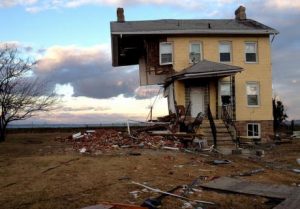Are megatropolises creating a geographical boundary of inequality?
In case you haven’t heard enough griping about California’s over-priced real estate market recently, here is a little more fuel for the fire. As cities become more popular and affluent, particularly with the attraction of high-paying jobs, the divide between the upper class and the middle and lower classes becomes more apparent and geographically based.
Cities are becoming high-income districts unto themselves, with the poor and less affluent moving into the suburbs or as far as affordable transport permits. As the price of living in America’s most expensive urban areas has soared – rents and home values rose about 12.5% between 2010 and 2014 – the solution for many poorer families has been to move out. Households that made $30,000 or less moved out at the highest rate, nearly 8x higher than their high-income earning neighbors.

Millennials, once synonymous with city living, are fleeing expensive rental markets far faster than any other age group, nearly double the average rate. Millennial’s relatively low incomes, high debt, and job-hopping are likely driving the exodus. Tech-hubs like San Jose and San Francisco have a much higher retention rate of young people, as most 20-somethings in the tech industry are extremely well paid (the median base salary for an engineering-focused summer intern at some of the big technology companies is $6,800 a month!).

Coupled with the disturbing trend of illegal evictions and rapid gentrification of many California communities, the state is in a crisis situation. Low income families are being displaced at a staggering rate, being pushed further into the suburbs, and many of these communities lack the infrastructure, safety-net supports, and resources to address the needs of a growing poor population. Suburbs typically have less transit than urban areas, making it difficult to travel for work and shopping. These kinds of obstacles make it much harder for poor residents to connect to the kids of opportunities that can help get them out of poverty in the long run.

Meanwhile, California is debating “inclusionary housing” requirements and rent control ordinances to try and alleviate some of the geographical boundaries of economic disparity.







0 Responses
Oh, man, does this ever hit a nerve!
I was raised in the country, and then in nearby suburbs — so, aside from a few years in the city (the sort of adventure every young person should enjoy), I have little experience living in urban areas. However, in mid-life, I am among many knocked aside and shoved out of my own hometown by… well, I guess it really is gentrification.
I grew up in a small town on the San Francisco Bay peninsula (closer to San Jose than SF) — which, when I was growing up, was composed of first-generation immigrant families who made their living on apricot orchards and strawberry fields as far as the eye could see.
In short (as short as I can make it), my family and my neighbors were all farmers and ranchers. Within 30 years of my birth, the “nouveau riche” — including some of the most recognizable names in Silicon Valley — discovered my town, moved in, took over the local city councils, and raised property values so artificially high that those of us who grew up here were 1) left with our parents’ homes valued in the millions, but 2) could not afford to continue living in our hometown.
I could write a book about this (and maybe one day I will), but the upshot is: I would love to have spent the rest of my life in the beautiful little town in which I was born, but from which I was shoved out — by very, very rich people who neither know the rich history of my town, nor give a hoot about it.
Do I sound bitter? Yes, I do — because I am.
I miss my hometown — which today only exists in old photographs.
Is my experience any different from that of urbanites crowded out by the rich and undeserving? I don’t think so.
Thank you for sharing. I’m seeing this in my neighborhood as well. Communities with residents who have been around for decades have completely changed over the course of a few years.
This is the reason why I have no plans of moving to the city, despite you pointing out that it offers more high paying jobs there. I’d prefer to travel everyday, even though it could be a little bit tiring, than the expenses that would slap me in the face if I rent an apartment or a house there. Other than that, it is also very undeniable that the cost of living there is really high, and although jobs in cities relatively pay higher than of those in suburbans, I still feel that they are far from enough to cover expenditures when a millennial like me would live there.